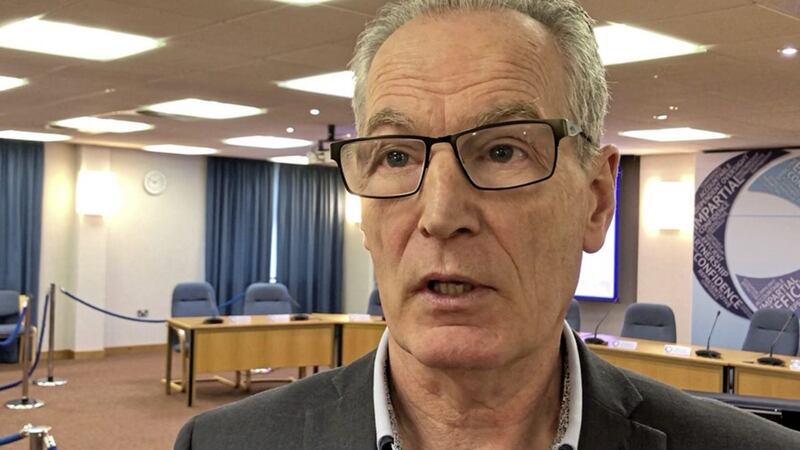Reading Gerry Kelly’s new book, ‘Playing My Part’, you can see why he is a remarkable leader and where his deep-seated republican convictions come from.
Convictions which make him effective: astute as a negotiator, on the streets protesting, a North Belfast MLA dealing with complaints, or at the north’s executive table as junior minster.
Gerry Kelly is personable, well read, with perhaps a detailed photographic memory and a good sense of humour.
‘Playing My Part’, along with his first book, ‘The Escape’, (from the H-Blocks), and his collection of prison poems, show him to be an accomplished self-taught writer.
He knows how to tell a story and hold the reader.
He spent 15 years in various prisons, 205 days on hunger strike in 1973-74, during which he was force-fed for 167 days, one of his comrades, Michael Gaughan, dying when his lungs were punctured by a force-feeding tube.
In the book’s introduction Gerry Adams brings out another side to Gerry Kelly and that is as a dancer. A dancer, who ‘honed his skills’ dancing alone in prison cells in Ireland, Britain and Holland.
When Gerry ‘danced back then, Gerry was free’ wrote Adams.
Thus, the quote from the revolutionary figure Emma Goldman: ‘If I can’t dance, I don’t want to be part of your revolution’ is also in the foreword of the book.
Gerry found intimacy, romance, love and children in his revolution.
He is now a father and grandfather and happily married to Margaret for twenty years.
Gerry Kelly’s intrepid life as a republican activist begins at an early age, when he is 17.
By the time he joins the IRA in Ballymurphy, shortly after Bloody Sunday in 1972, he is already ‘on the run’ following a dramatic escape from the high-security Mountjoy Prison in Dublin.
The escape opens the book and its spontaneous, daring manner reveals nascent leadership qualities which are hallmarks of Gerry’s life.
He calls on these characteristics throughout his life whether on hunger strike in prison and being forced-fed; leading the mass escape from Long Kesh and many other failed escapes and various roles as a Sinn Féin elected representative.
Gerry Kelly describes himself as ‘typical of many thousands of my generation’ who became republican activists.
He said; “I had become radicalised, not through reading history books or studying politics, but what I witnessed personally and saw on TV footage.”
In his home area of Ballymurphy the British Paras carried out two massacres of innocent local people.
By the end of March 1972 there were around two dozen deaths in the area – including civilians, IRA volunteers and British soldiers.
Natural and unnatural death came early in his life and left an indelible mark. His close friend and IRA member, Patrick Campbell, was shot dead aged 16. Gerry wore his ring in his memory.
His mother Agnes died at 47 a few weeks later. The words of his poem lamenting her sudden death are disturbingly powerful and evocative. He describes it as ‘an immeasurable loss’. The ‘essence of my grief. An emptiness of unknown dimensions/Which cannot be filled.’
I was overwhelmed by it and took time out from the book to compose myself – memories of my own mother flooded in.
A black-and-white photo of Gerry as a child with his family greet you at the start of the book.
The photos at the end of the book say it all in terms of the direction his life took.
He is in the company of Nelson Mandela, Fidel Castro, Albie Sachs and Hillary Clinton.
But my guess is that it is the photo of him and his brothers having a pint with their daddy which speaks most about his identity and idealism, a man rooted in family, friends and nation.
In an interview with the journalist Brian Rowan about the book, Gerry Kelly spoke at length about peace, the human cost of the war and the importance of “accountable truth” for the relatives of those who died in the conflict.
A timely reminder given the British government’s legacy statement last week described by Relatives for Justice as attempt by it “to prevent the truth emerging about its role in the conflict.”
He said he was “proud and glad” that the negotiations he was part of found a political way forward and ended the armed conflict.








